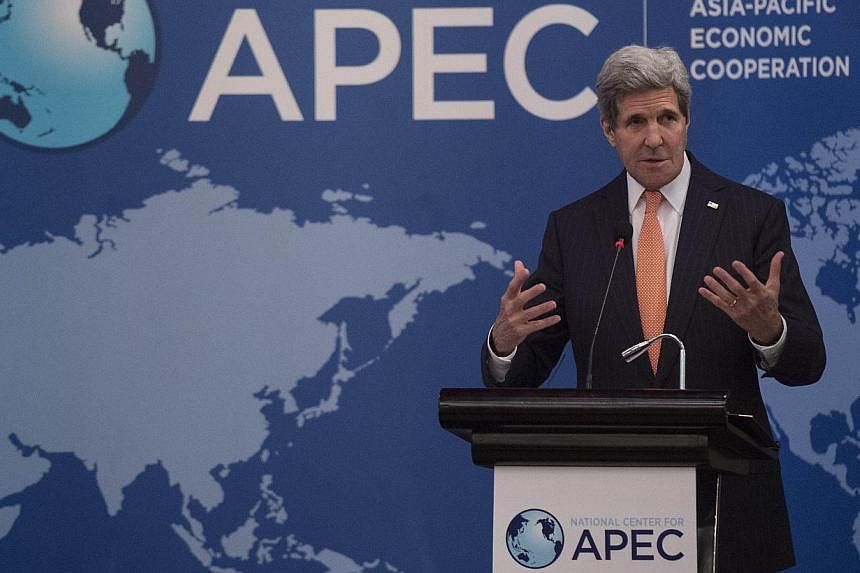BEIJING (REUTERS) - Asia Pacific countries agreed on Saturday to cooperate on the extradition of corrupt officials, enhance asset recovery efforts and establish an anti-corruption transparency network to share intelligence on graft.
The network, called the Apec Network of Anti-Corruption Authorities and Law Enforcement Agencies (ACT-NET), is the first such network that members of the Asia-Pacific Economic Cooperation group had worked to set up. It is led by China but also pushed forward by the United States.
The network would be an informal one "for sharing information" among anti-corruption and law enforcement authorities in the Asia-Pacific region, according to a statement issued by the Apec members.
The agreement commits the 21 member economies in the Asia-Pacific region, including China and the United States, to"deny safe haven to those engaged in corruption, including through extradition, mutual legal assistance and the recovery and return of proceeds of corruption".
The agreement comes as Chinese President Xi Jinping seeks to widen his far-reaching graft campaign to nab suspects who have fled abroad, particularly those who have taken their ill-gotten gains with them. Last month, China said it had captured 180 people suspected of committing economic crimes in its campaign called "Operation Fox Hunt". "We believe that this cooperation is a major step forward,"U.S. Secretary of State John Kerry said at a news briefing."Corruption not only creates an unfair playing field, it not only distorts economic relationships, but corruption also steals from the people ... who believe the system can work for everyone." It is unclear if the agreement will effectively curb corruption. Western governments have balked at setting up extradition deals with China because torture is often used by Chinese legal authorities in extracting confessions, and capital punishment is widely meted out for corruption crimes.
The agreement also said it would "establish measures and systems to protect whistleblowers".
It is uncertain how the agreement would work among countries that do not have mutual extradition treaties. China has extradition treaties with 38 countries, but not the United States, Canada or Australia - the three most popular destinations for suspected economic criminals, according to state media.

